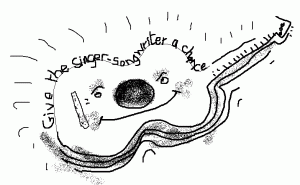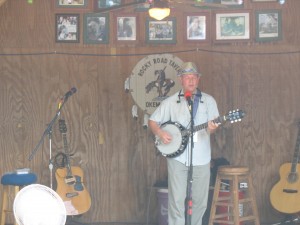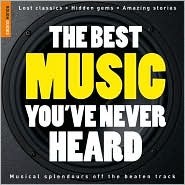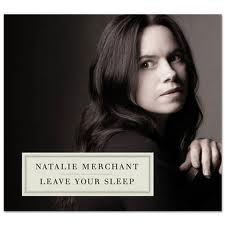In an interview about music criticism, Elvis Costello said, ‘Writing about music is
like dancing about architecture. It’s a really stupid thing to want to do.’
Though the man was right in one sense he was also way off beam in others, especially
singer-songwriters, if the number of books still coming out on Dylan, Hendrix,
Jim Morrison, The Beatles and many others are anything to go by.
Nearly two years ago, in preparation for the task of writing my book, I signed up for some writing workshops. At the time I’d written maybe half a chapter and had little more than a sketchy plan of the rest. However, I did have an overall concept which was that the book would focus on songwriters and each chapter take the lyrics of a song as its inspiration (an idea I’d had for many years). The book would also be accompanied by a CD of the material used. My reasoning was that most songs have a history; the composer’s, the artist’s and musician’s,
the recording company’s, etc, who’ve either sung or listened to them, or been affected in some other way. Hence the book’s subtitle, ‘Song Tales’. I knew I had many personal experiences worth telling, especially from my youth trailing around the pubs, clubs and coffee bars in pursuit of gigs, but also wanted to weave these into a wider narrative – maybe even make the book semi-fictional. I also hoped to include some factual information, maybe as footnotes, and later as audio-visual material on an ebook version or website. High hopes indeed – but could I pull it off?
I brought my first few pages along to the workshop, feeling quite nervous even though everyone was very friendly and supportive. Part of this apprehension was due to the fact that for over thirty years the main recipients of my songs, stories and plays had been school kids. It was a long time since I’d had to face an adult audience, though was recently singing in folk clubs again, and found even a few polite adults far more intimidating than a hall full of noisy children.
There was also another concern; my story did not fit into any conventional genre (crime, romance, fantasy, etc) and alsobincluded quite a few expletives. Though I personally dislike swearing, it’s obvious that for narrative reality one must include it. Previously I had written children’s novels where, not wanting to alienate publishers, I’d avoided them or used softer alternatives (though in real life many children use far worse language than adults). But a grown-up novel set in modern times, especially with musicians as the main protagonists, that did not include
swearing was unthinkable. However, I felt tense reading my piece out, especially as most of the other writers were quite a middle-aged lot employing much gentler language and subject matter. One elderly man read a moving article he’d written about his very personal spiritual experiences and, as he did so, I felt embarrassed on everyone’s behalf at my relative crudity.
Nevertheless, I got a lot from the workshops (though don’t ask me to be specific), and returned home with renewed energy, finishing the final edit earlier this year. But now comes the hard part – promoting it. As an old music publisher friend once said to me, ‘Artists think they’re the creative ones, but the real creativity comes in flogging the damn stuff.’




